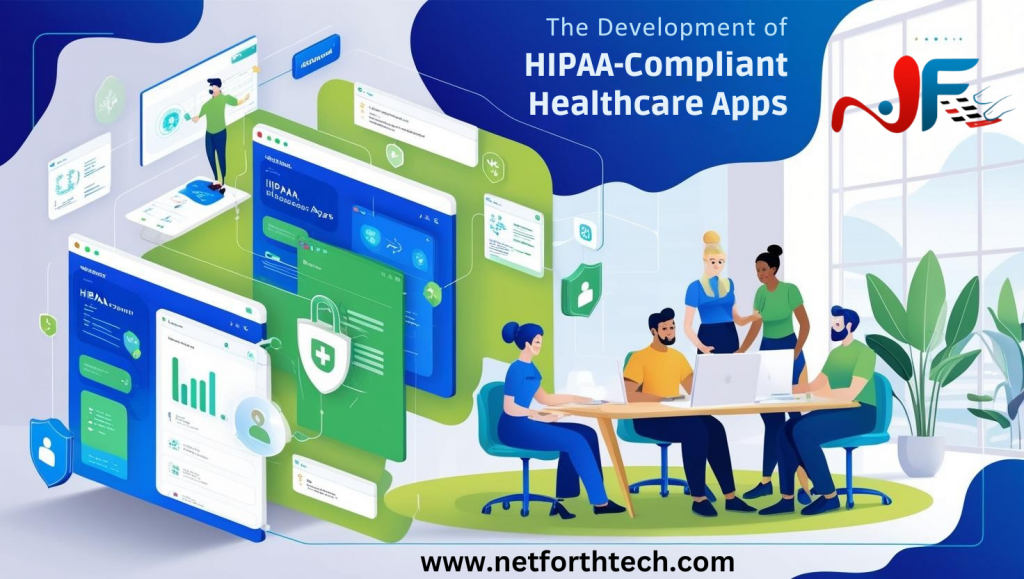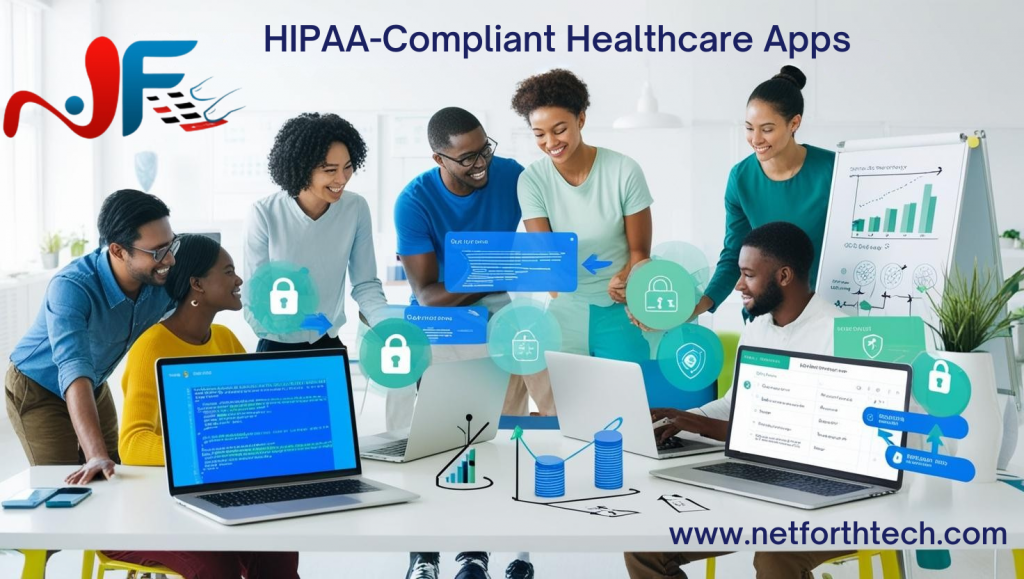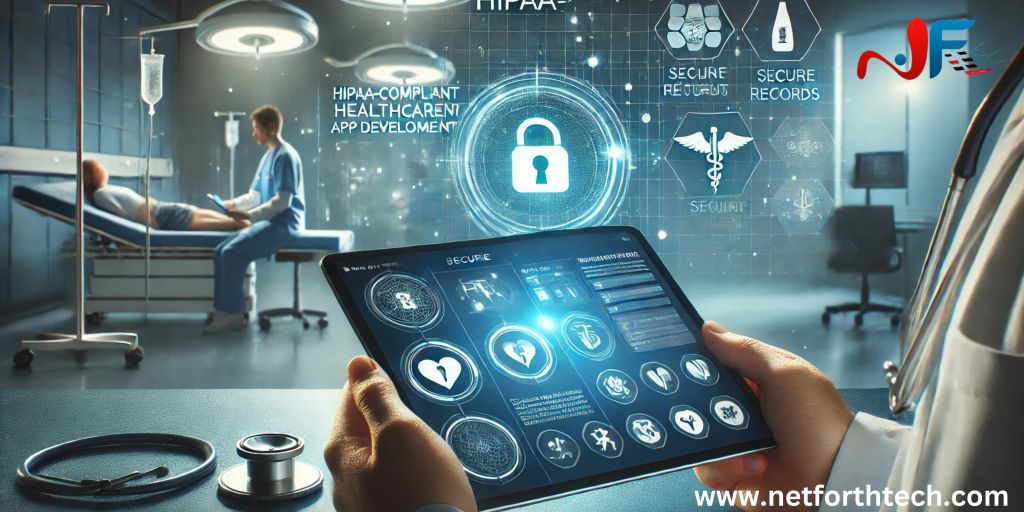In today’s digital era, healthcare organizations are rapidly adopting mobile applications to enhance patient care, streamline operations, and improve accessibility. However, ensuring these apps comply with HIPAA (Health Insurance Portability and Accountability Act) regulations is crucial to safeguarding sensitive patient data. In this guide, we’ll explore the essentials of HIPAA-compliant healthcare apps development, key security measures, and best practices to create secure and scalable solutions.

What is HIPAA Compliance?
HIPAA is a U.S. federal law that establishes data privacy and security standards to protect patients’ health information (PHI). Any healthcare app handling PHI must meet HIPAA requirements to prevent unauthorized access, data breaches, and legal penalties.
Key Components of HIPAA Compliance
To develop a HIPAA-compliant healthcare app, the following requirements must be met:
- Privacy Rule: Ensures the protection of individuals’ medical records and PHI.
- Security Rule: Sets standards for electronic PHI (ePHI) to maintain data confidentiality, integrity, and availability.
- Breach Notification Rule: Requires organizations to notify affected individuals and authorities in case of a data breach.
- Enforcement Rule: Establishes penalties for non-compliance.

Features of a HIPAA-Compliant Healthcare App
To ensure security and compliance, a HIPAA-compliant healthcare app should include:
1. Data Encryption
All PHI must be encrypted both in transit and at rest using advanced encryption protocols (AES-256, TLS 1.2/1.3) to prevent unauthorized access.
2. Secure User Authentication
Multi-factor authentication (MFA), role-based access control (RBAC), and strong password policies help ensure that only authorized personnel can access sensitive data.
3. Audit Logging and Monitoring
Comprehensive logging of user activities ensures traceability and detects potential security threats in real time.
4. Automatic Session Timeout
Session timeouts prevent unauthorized access in case a device is left unattended.
5. Data Backup and Disaster Recovery
Regular backups and disaster recovery mechanisms ensure the availability of PHI even in case of system failures or cyberattacks.
6. HIPAA-Compliant Cloud Hosting
Using secure cloud services like AWS, Google Cloud, or Microsoft Azure with HIPAA compliance certification ensures safe data storage and transmission.

Steps to Develop a HIPAA-Compliant Healthcare App
Step 1: Requirement Analysis and Compliance Planning
Identify app functionalities, determine PHI usage, and outline security measures aligned with HIPAA regulations.
Step 2: Choose a Secure Development Framework
Use robust frameworks such as React Native, Flutter, or native development tools that support security best practices.
Step 3: Implement Data Security Measures
Integrate encryption, access control, and secure APIs to protect PHI from unauthorized access and breaches.
Step 4: HIPAA Training for Developers and Stakeholders
Educate the development team and stakeholders on HIPAA compliance to ensure security-conscious development practices.
Step 5: Testing and Compliance Audits
Conduct penetration testing, vulnerability assessments, and HIPAA compliance audits before deployment.
Step 6: Deployment and Continuous Monitoring
Deploy the app in a HIPAA-compliant cloud environment and continuously monitor security performance with real-time threat detection tools.

Why Choose Netforth Software Solutions for HIPAA-Compliant Healthcare App Development?
At Netforth Software Solutions, we specialize in building secure and scalable HIPAA-compliant healthcare apps that meet industry regulations. Our expertise in healthcare IT, data security, and cloud solutions ensures your app is fully compliant while delivering a seamless user experience.
Our Healthcare App Development Services:
- Custom HIPAA-compliant mobile apps
- Secure API development & integration
- Telehealth & remote patient monitoring apps
- Electronic health record (EHR) system development
- AI-driven healthcare solutions
Conclusion
Developing a HIPAA-compliant healthcare app requires a deep understanding of security protocols, compliance standards, and user-centric design. By following best practices and working with experienced healthcare app developers, you can build a secure, scalable, and regulation-compliant solution that enhances patient care.
Looking for expert HIPAA-compliant healthcare app development? Contact Netforth Software Solutions today and turn your vision into reality!
Get in touch with us to discuss your project!





